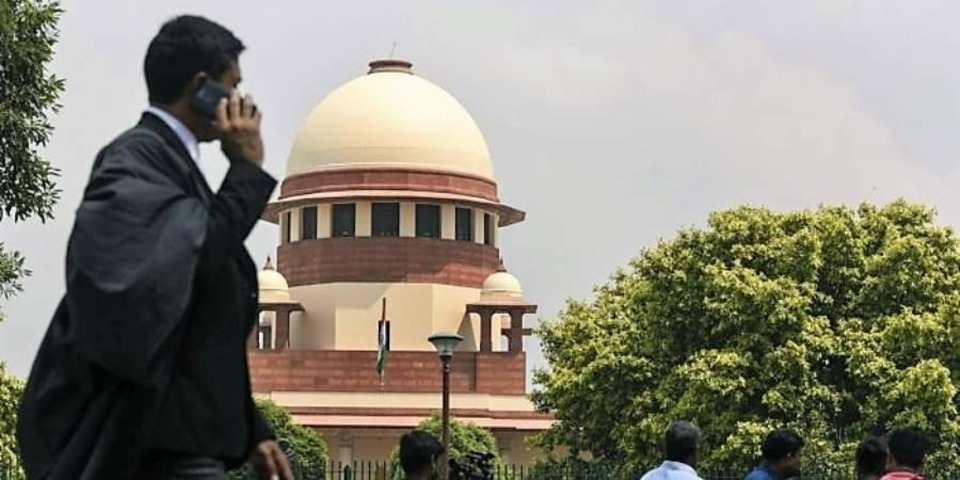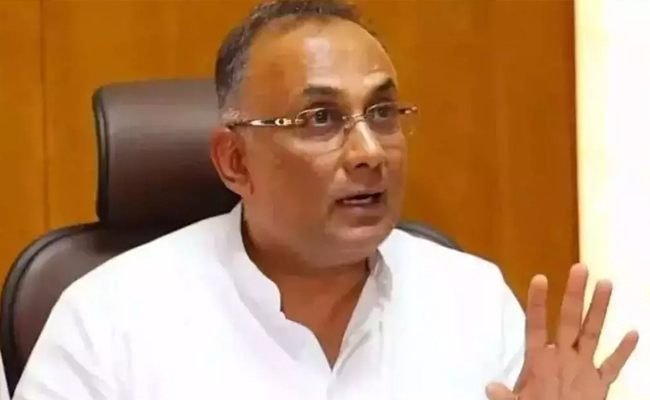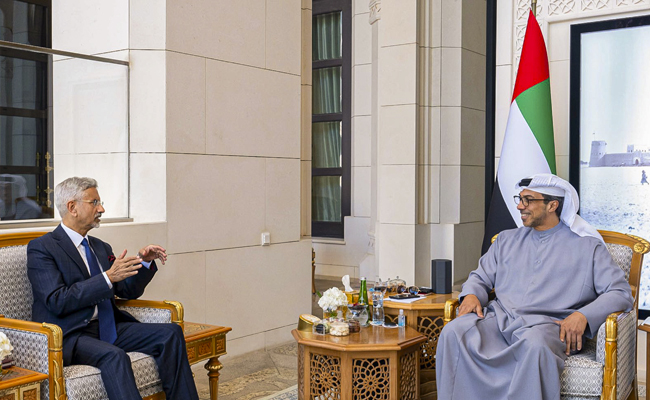New Delhi: The Supreme Court Wednesday refused to lift the stay on the release of Amitabh Bachchan starrer Jhund' and dismissed an appeal against the Telangana High Court order which had stalled the movie's screening over copyright row.
A bench of Chief Justice S A Bobde and Justices A S Bopanna and V Ramasubramanian dismissed the appeal filed by petitioner Super Cassettes Industries (T Series) against the October 19 order of the high court which had refused to interfere with the trial court order restraining the release of the movie.
The special leave petitions are dismissed. As a sequel to the above, pending interlocutory applications, if any, stand disposed of, the bench said in its order.
The film, based on the life of Vijay Barse, the founder of NGO Slum Soccer, was scheduled to be released this month on OTT platform Amazon Prime. The film was earlier scheduled to be released in May but due to the COVID-19 pandemic, it did not hit the screens.
Hyderabad-based short-film maker Nandi Chinni Kumar has alleged copyright infringement against the filmmakers, who have refuted the allegation.
During the hearing, the apex court observed that it is an interesting case and it would direct that the trial will be completed within six months.
Counsel appearing for the filmmaker said that the movie would be useless in six months and they were willing to pay the person in question.
He said that amount of Rs 1.3 crore was agreed between the parties but now they are not adhering to the agreement.
Senior advocate P S Narasimha, appearing for Kumar, and others said that the court may direct for disposal of the case which is pending in the trial court within six months.
A trial court in Telangana had on September 17 stayed the release of the movie till the conclusion of the case. The decision of the trial court was upheld by the High Court on October 19.
Super Cassettes has said in their petition filed in the top court that they have invested a significant amount in production, distribution, marketing, and promotion and have also created third party rights on the film which is to be broadcast on a wide scale both nationally and internationally.
A cinematograph film is a perishable commodity and halting of the complex process that leads up to the release of the film at such a belated stage could prove to be fiscally ruinous for the petitioner and make the entire project financially unviable, the plea said.
Let the Truth be known. If you read VB and like VB, please be a VB Supporter and Help us deliver the Truth to one and all.
New Delhi: A bill to set up a 13-member body to regulate institutions of higher education was introduced in the Lok Sabha on Monday.
Union Education Minister Dharmendra Pradhan introduced the Viksit Bharat Shiksha Adhishthan Bill, which seeks to establish an overarching higher education commission along with three councils for regulation, accreditation, and ensuring academic standards for universities and higher education institutions in India.
Meanwhile, the move drew strong opposition, with members warning that it could weaken institutional autonomy and result in excessive centralisation of higher education in India.
The Viksit Bharat Shiksha Adhishthan Bill, 2025, earlier known as the Higher Education Council of India (HECI) Bill, has been introduced in line with the National Education Policy (NEP) 2020.
The proposed legislation seeks to merge three existing regulatory bodies, the University Grants Commission (UGC), the All India Council for Technical Education (AICTE), and the National Council for Teacher Education (NCTE), into a single unified body called the Viksit Bharat Shiksha Adhishthan.
At present, the UGC regulates non-technical higher education institutions, the AICTE oversees technical education, and the NCTE governs teacher education in India.
Under the proposed framework, the new commission will function through three separate councils responsible for regulation, accreditation, and the maintenance of academic standards across universities and higher education institutions in the country.
According to the Bill, the present challenges faced by higher educational institutions due to the multiplicity of regulators having non-harmonised regulatory approval protocols will be done away with.
The higher education commission, which will be headed by a chairperson appointed by the President of India, will cover all central universities and colleges under it, institutes of national importance functioning under the administrative purview of the Ministry of Education, including IITs, NITs, IISc, IISERs, IIMs, and IIITs.
At present, IITs and IIMs are not regulated by the University Grants Commission (UGC).
Government to refer bill to JPC; Oppn slams it
The government has expressed its willingness to refer it to a joint committee after several members of the Lok Sabha expressed strong opposition to the Bill, stating that they were not given time to study its provisions.
Responding to the opposition, Parliamentary Affairs Minister Kiren Rijiju said the government intends to refer the Bill to a Joint Parliamentary Committee (JPC) for detailed examination.
Congress Lok Sabha MP Manish Tewari warned that the Bill could result in “excessive centralisation” of higher education. He argued that the proposed law violates the constitutional division of legislative powers between the Union and the states.
According to him, the Bill goes beyond setting academic standards and intrudes into areas such as administration, affiliation, and the establishment and closure of university campuses. These matters, he said, fall under Entry 25 of the Concurrent List and Entry 32 of the State List, which cover the incorporation and regulation of state universities.
Tewari further stated that the Bill suffers from “excessive delegation of legislative power” to the proposed commission. He pointed out that crucial aspects such as accreditation frameworks, degree-granting powers, penalties, institutional autonomy, and even the supersession of institutions are left to be decided through rules, regulations, and executive directions. He argued that this amounts to a violation of established constitutional principles governing delegated legislation.
Under the Bill, the regulatory council will have the power to impose heavy penalties on higher education institutions for violating provisions of the Act or related rules. Penalties range from ₹10 lakh to ₹75 lakh for repeated violations, while establishing an institution without approval from the commission or the state government could attract a fine of up to ₹2 crore.
Concerns were also raised by members from southern states over the Hindi nomenclature of the Bill. N.K. Premachandran, an MP from the Revolutionary Socialist Party representing Kollam in Kerala, said even the name of the Bill was difficult to pronounce.
He pointed out that under Article 348 of the Constitution, the text of any Bill introduced in Parliament must be in English unless Parliament decides otherwise.
DMK MP T.M. Selvaganapathy also criticised the government for naming laws and schemes only in Hindi. He said the Constitution clearly mandates that the nomenclature of a Bill should be in English so that citizens across the country can understand its intent.
Congress MP S. Jothimani from Tamil Nadu’s Karur constituency described the Bill as another attempt to impose Hindi and termed it “an attack on federalism.”



_vb_22.jpeg)

